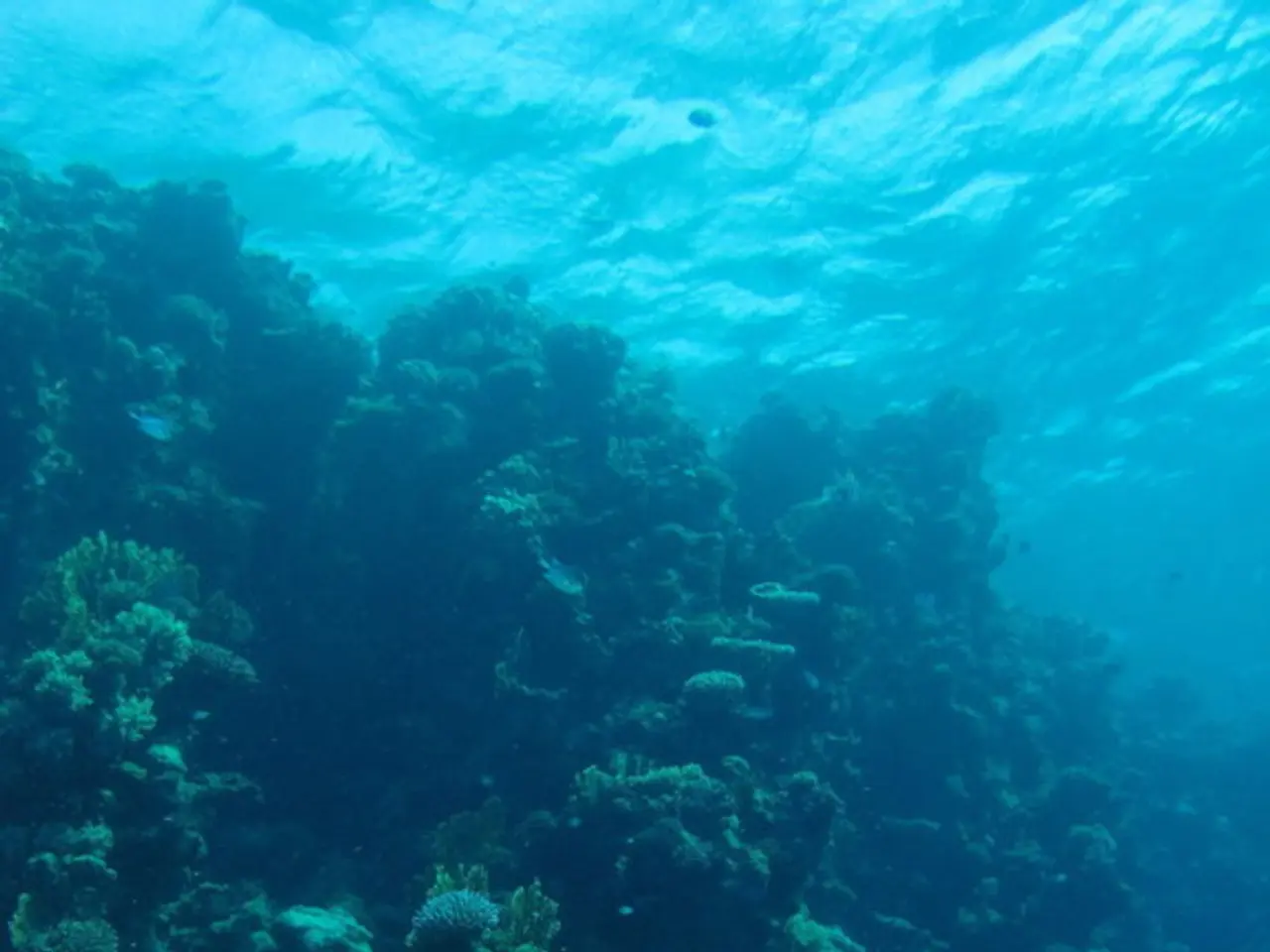Secures Additional Funding for Provectus Algae to Expand Methane-Reducing Seaweed Technology
Provectus Algae Scales Up Seaweed-Based Methane Reduction Solution
Provectus Algae, an Australian startup, is making significant strides in the fight against methane emissions from cattle. The company has developed a technology to stabilize the active compounds in seaweed, specifically Asparagopsis, and deliver them in a dry, finished powder form known as 'Surf 'n' Turf'. This feed additive is designed to reduce methane emissions and boost cattle performance.
The company aims to supply 'Surf 'n' Turf' to 30-50,000 animals per day by early next year, targeting the significant Australian feedlot beef market that handles about 1.2-1.5 million animals annually.
Securing funding in the current environment is crucial, and Provectus Algae has raised a $10.1 million Series A round and secured a $2.5 million grant from the Australian government. The funds will be used to further scale production, perform large trials, and supply the market with large quantities of 'Surf 'n' Turf'.
The round was led by At One Ventures and included Methane Mitigation Ventures, Mort & Co, Hitachi Ventures, and existing shareholders. Provectus Algae's technology is based on a closed-system automated bioreactor for growing photosynthetic algae, which the company claims can produce Asparagopsis more rapidly and consistently than other land-based growing systems.
The system is scalable and modular, making it well-positioned to deliver large volumes of the product locally where large farming operations are. Provectus Algae's technology can potentially increase cattle productivity, but the question of who will ultimately foot the bill for livestock methane reduction remains unanswered.
The potential for carbon credits is enormous due to the ability to measure the abatement in real-time, which could lead to the creation of extremely high-value credits in the opaque carbon market. However, converting the value proposition of carbon credits into revenue at scale requires validation, tracking, and measuring of on-farm abatement, and a robust monitoring and verification process.
Provectus Algae believes that Asparagopsis is the right technology for driving the most significant methane reduction and potential performance gains in animals. The company currently has a 110,000-liter capacity and aims to increase it to approximately 260,000 liters by September.
Other key players in the field of methane reduction include DSM's Bovaer, a synthetic methane inhibitor with EU authorization, and CH4 Global, another startup scaling production of Asparagopsis supplements. Ongoing research is being conducted into alternative feeds, vaccines, breeding, genetic editing, and biomanufacturing platforms.
In summary, the frontline solutions today are feed supplements derived from red seaweed (Asparagopsis) and synthetic methane inhibitors like Bovaer, both of which can reduce methane emissions by around 20-30%. These are supported by novel biomanufacturing platforms, fermentation advancements, and complementary feed strategies. Emerging biotechnologies and breeding approaches are underway but have not yet reached widespread commercial use.
- The health-and-wellness sector could benefit significantly from Provectus Algae's seaweed-based solution, as it aims to improve both the health of cattle and the environment by reducing methane emissions.
- The manufacturing industry might see a shift towards more sustainable practices as companies like Provectus Algae scale up eco-friendly solutions, such as the production of Asparagopsis for feed additives.
- Environmental-science experts are closely watching the progress of Provectus Algae, as their technology could have a considerable impact on climate change by reducing methane emissions from the cattle industry.
- Personal-finance investors might find interesting opportunities in the growing field of sustainable technology, as startups like Provectus Algae attract funding for solutions that address pressing environmental concerns like methane reduction.
- Data-and-cloud-computing companies could play a crucial role in verifying and tracking the on-farm abatement of methane emissions for businesses like Provectus Algae, as they strive to create high-value carbon credits.
- Lifestyle choices could be influenced by the adoption of seaweed-based feed additives in the food-and-drink industry, as consumers become more aware of the environmental impact of their dietary choices.
- The sports industry, particularly basketball, could potentially benefit from the increased profits that might come from more sustainable and efficient farming practices, as proceeds from such operations could fund various aspects including player salaries and facilities.
- Technology firms engaged in finance, biomanufacturing, and fermentation advancements could find synergy with Provectus Algae's work, leading to collaborations and innovation in the realm of methane reduction and livestock performance enhancement.




